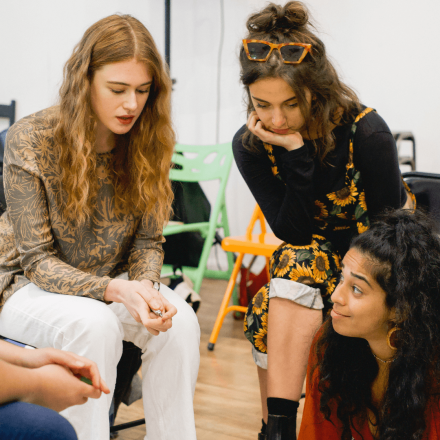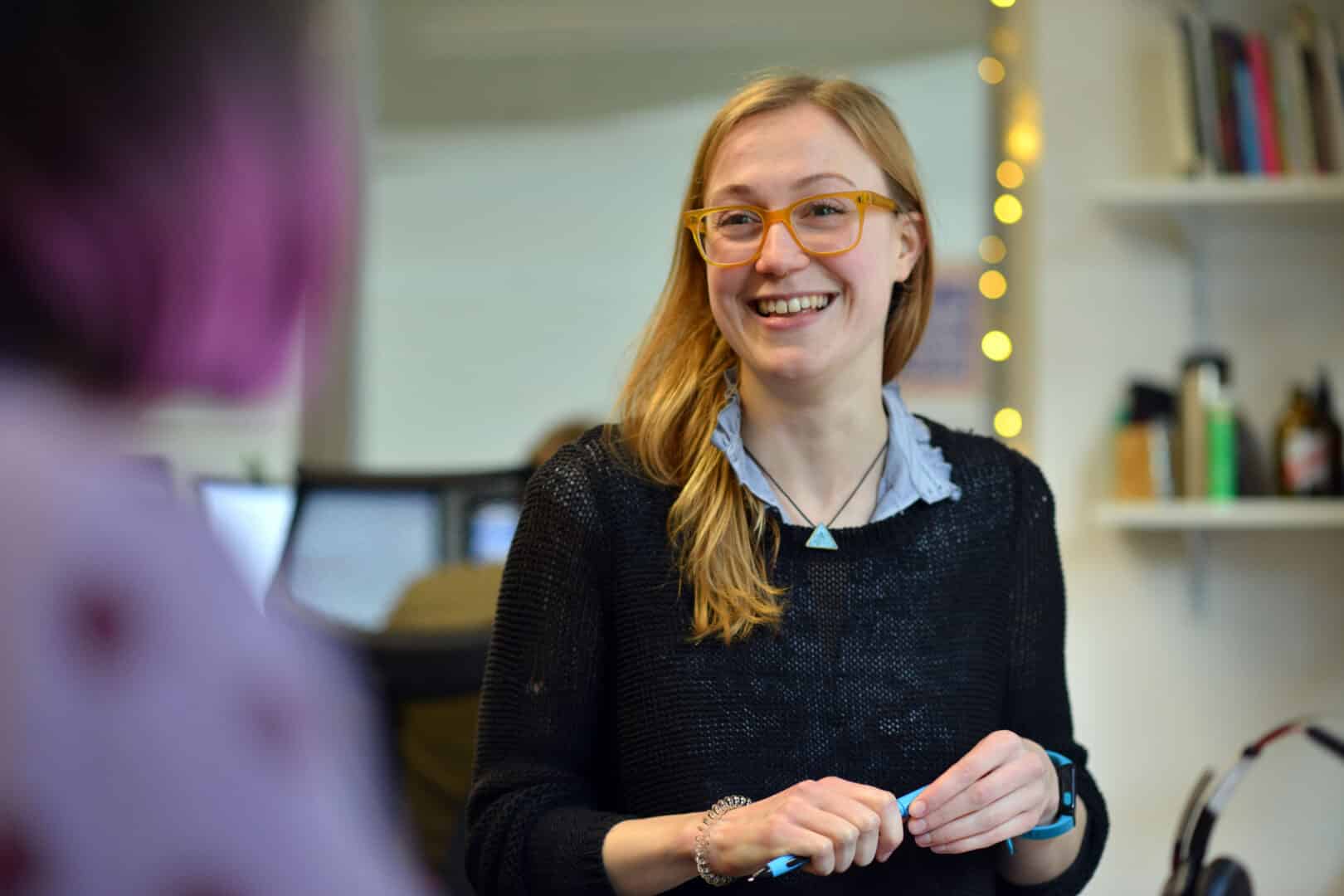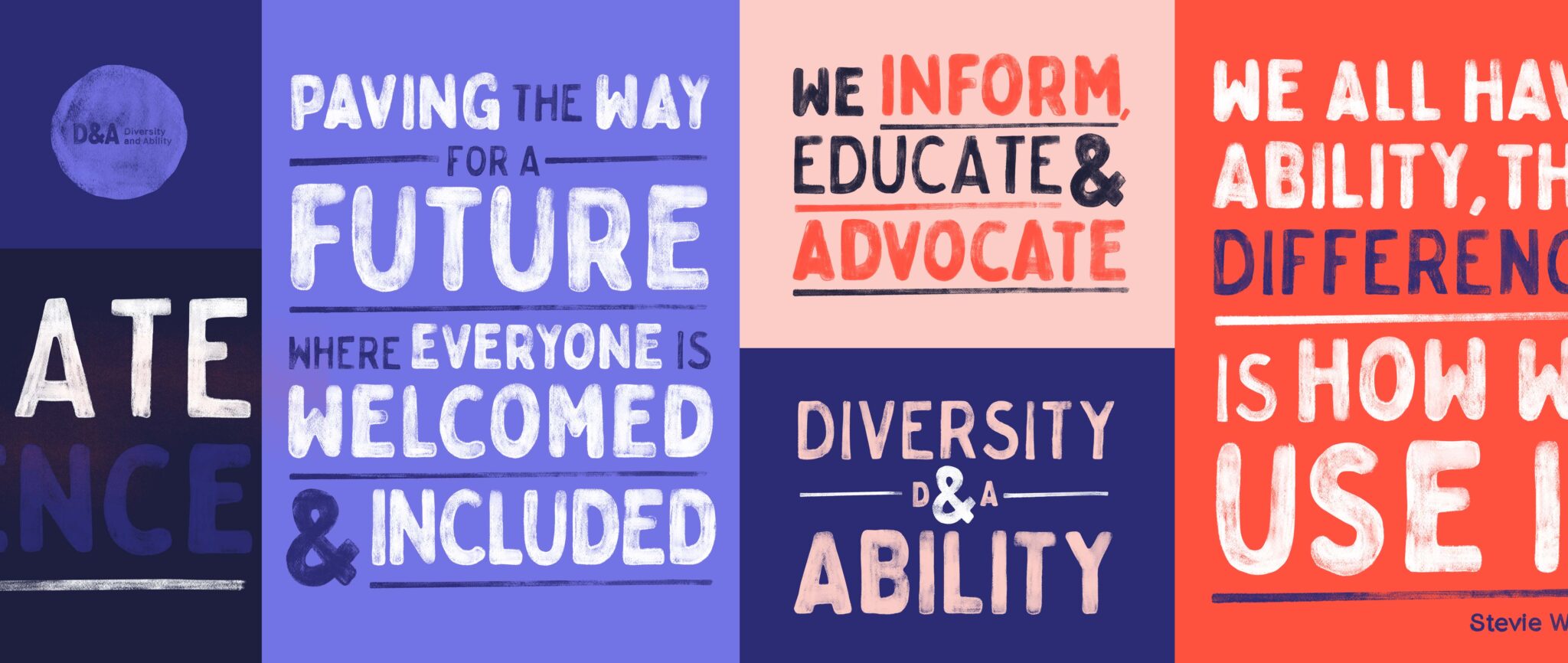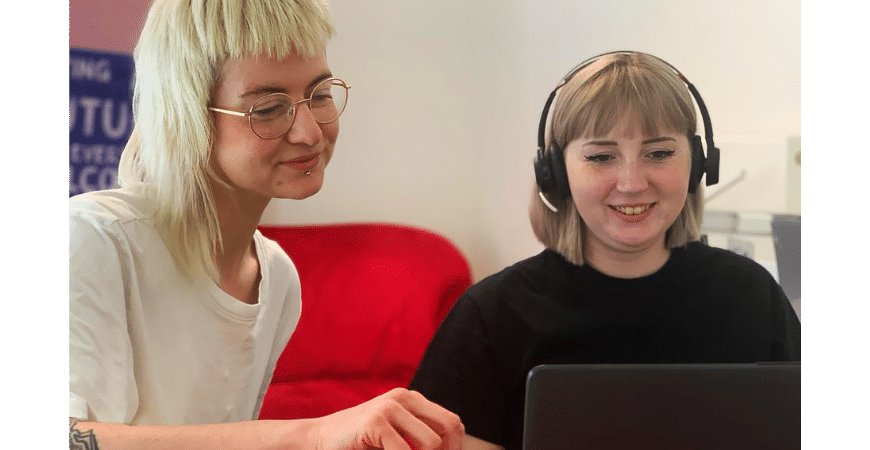One-to-One Support for Students
Diversity and Ability provides different types of support for students at university. If you’re looking to understand more about what support you can access, and how to access it, we have the answers.
What is one-to-one support?
One-to-one support is a way of getting individual, private sessions to help you make the most of your time at university. Although the nature of the support will vary, all of our support sessions are:
- One-to-one. You’ll meet in a space that’s just for the two of you, so the support is completely focused on you.
- Confidential. All of your information will be kept confidential unless you give consent for us to share it. There are some exceptions to this, which you can find out in our confidentiality policy.
- Either face-to-face or virtual (remote). Your support may take place face-to-face (in-person) or remotely (via a virtual meeting platform). If your preference is for face-to-face support, we will always do our best to accommodate this, but this is dependent on your preference, availability, and location.
- Tailored to you. Our supporters completely adapt the style and focus of your sessions to meet your individual needs and goals.
- Focused on your university experience. Our supporters are solution-focused and student-led. So, whatever barriers you’re facing to your student life, our supporters are there to help.

Funding
One-to-one support for university studentys is usually funded through a form of Disabled Students’ Allowance. This includes several different funding avenues, for example:
- Student Finance
- Research Councils
- University-specific funds and/or grants
- NHS Bursaries
How your support is funded will depend on lots of things. If you think you might be eligible for support, explore our DSA: Find Your Way guide. We also recommend reaching out to your university’s disability support department for more guidance!
Assistive Technology Training
Assistive technology training sessions provide you with tailored support for the assistive technology, software, and apps available to you. In your sessions, you’ll learn how to use your assistive technology, supporting you in all aspects of your studies.
We’ll connect you with a skilled trainer who will work closely with you to determine which tools are most effective for various study situations, including lectures, seminars, assignments, or revision. You may focus on:
- Learning how to use and navigate your assistive technology, software and apps.
- Customising your assistive technology to your preferences and needs.
- Integrating your assistive technology into your studies, such as using text-to-speech features for reading course materials.
- Troubleshooting any challenges you encounter while using your assistive technology.
“I now have the confidence to use Assistive Technology and see it as something that can help me, rather than terrify me. I have gained confidence with everything I do on my laptop!”
Mentoring
Mentoring is designed to support your mental health and help you make the most out of all aspects of your university experience. It may be called Specialist Mentoring, Mental Health Mentoring, AS (Autism Spectrum) Mentoring or Wellbeing Mentoring.
Whether you are facing barriers academically, socially or emotionally, mentoring is built around you and is tailored to your individual needs and experience. All mentors are experienced and qualified practitioners.
During your mentoring sessions, your mentor can help you to develop strategies to manage your wellbeing and studies. You might discuss:
- Support with motivation and morale
- Managing long-term mental health barriers
- Building confidence and self-esteem
- Dealing with unexpected challenges
- Any pastoral matters which are causing anxiety or stress

Study Skills Support
Study skills sessions help you understand your learning style and develop strategies to meet your academic goals. This support has a few different names, including Study Skills Tutoring, SpLD (Specific Learning Difference) Tutoring, or AS (Autism Spectrum) Study Skills.
The purpose of Study Skills support is to assist you in studying more effectively and efficiently, leaving you with lasting, transferable skills that enhance your studies and set you up for success.
We’ll match you with a qualified supporter who can help you with:
- Organisation and timekeeping
- Essay composition and planning
- Reading and proofreading skills
- Note-taking techniques
- Research and referencing
- Revision methods
- Motivation and study habits
“My Study Skills Support sessions have been life-changing. I use the skills I have learnt daily, and got a first in my degree which I couldn’t have done without this support.”
Ready to start?
Arrange your supportFrequently Asked Questions (FAQ)
I have found your details as you’re a provider of my one-to-one support. How do I book my sessions?
You can contact our friendly Bookings Team to arrange your support! They will ask you to share some details about your course and some documents that show your entitlement and to allow your supporter to get to know you better. After this, they will be able to book your sessions.
You can contact them to begin arranging your sessions.
I want to take up my one-to-one support in person. Where can this happen?
Your sessions can take place at your university, local library, or in a private, quiet study space. We aren’t able to provide support in a public setting, like cafés or parks. Our Assistive Technology Trainers may be able to visit you at your address, but this isn’t possible for study skills or mentoring support.
You might need to arrange a room for your support at your university and let your supporter know about any signing-in processes required.
I’ve been allocated Assistive Technology Training, but I haven’t received my equipment and software yet. Can I book my sessions anyway?
Before we can book your first sessions with our trainers you will need to have received all of your equipment. Make sure you have also installed and set up any software you have been allocated. This is so you can make the most of your training time, and not use it waiting for things to download!
I need to cancel my session. Who should I contact to do this?
We always recommend telling your supporter as soon as possible if you need to cancel or reschedule a session as soon as you can. You can find their contact details in your session confirmation email.
Depending on your funding, you may lose the hour of support if you’re cancelling the session within 24 hours.
If you can’t get hold of your supporter, you can contact the Bookings Team at hello@www.diversityandability.com or 0800 978 8303.
I’ve been given mentoring or one-to-one study skills support. Who will my supporter be?
Our supporters come from a wide range of backgrounds and experiences and are highly qualified in their fields. They have a lot of experience working with university students across all disciplines. However, they won’t necessarily have an in-depth knowledge of the specifics of your course.
We stand out from the crowd by championing lived experience, and many of our supporters are disabled and/or neurodiverse themselves. This means that your support is guided by years of expertise and the invaluable insight of personal experience.
Our Bookings Team works hard to ensure that each learner is matched with a supporter that works for them, based on the conversations they have with you and their in-depth knowledge of our supporters. But, if you have any questions, just ask!

